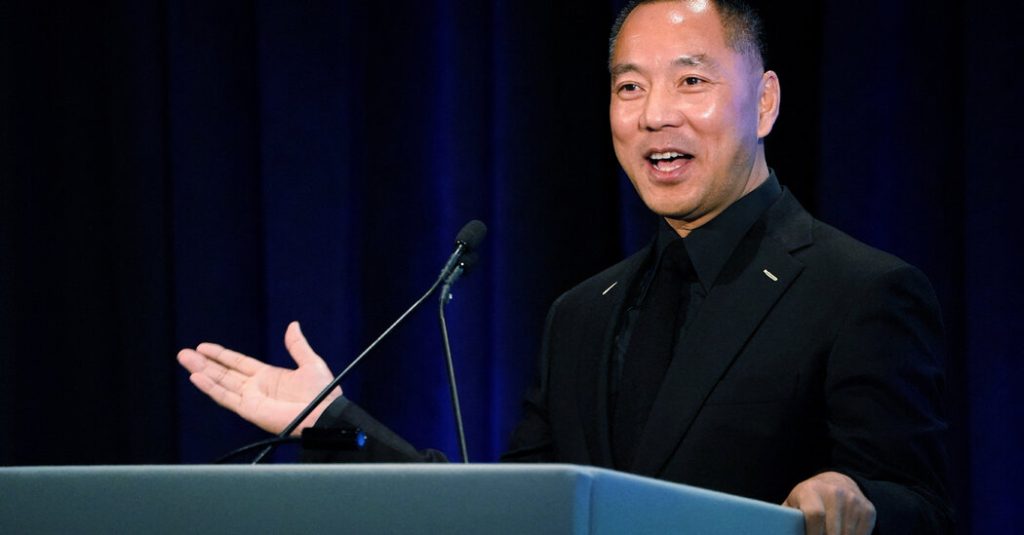The trial of exiled Chinese billionaire Guo Wengui began with his defense team portraying him as a dedicated leader of an anti-Communist movement who did not need the money he is accused of stealing. Guo, also known as Miles Kwok, has been charged with defrauding investors of over $1 billion and is currently in a federal detention center in Brooklyn. His lawyers argue that he would not defraud his supporters as it would undermine his efforts to topple the Chinese Communist Party, calling the accusations illogical and contrary to common sense.
Prosecutors allege that Guo promised investors shares in his media company or cryptocurrency, but instead used the funds to finance his lavish lifestyle, including purchases such as a yacht, sports car, and mansion. They claim Guo ran a large-scale fraud scheme at the expense of his loyal supporters, some of whom will testify against him. The case also relies on accounts from Guo’s former employees, bank records, and videos he made. However, jurors may find it challenging to reconcile Guo’s role as a criminal with his status as a celebrated anti-Communist crusader.
Guo rose to prominence in Beijing as a wealthy property developer with ties to a powerful intelligence official before fleeing to the United States nine years ago. In recent years, he has been vocal in criticizing senior Chinese officials through social media platforms and his own media company, attracting the ire of the Chinese government. His anti-Communist stance garnered support from thousands of individuals worldwide who saw him as a charismatic figure challenging China’s ruling party.
During the Trump administration, Guo aligned himself with members of the American right, including former adviser Steve Bannon. Together, they declared the formation of the “New Federal State of China” in 2020, further cementing Guo’s anti-Communist persona. The defense has indicated that they may argue Guo’s treatment by the Chinese government as a reason to doubt the fraud allegations, but prosecutors have moved to prevent this line of argument, calling it impermissible.
As the trial unfolds, both the prosecution and the defense will present their arguments to the jury, with the latter highlighting Guo’s past conflicts with the Chinese Communist Party. While Guo initially had support from a senior intelligence official in China, his departure from the country coincided with that official’s detention for corruption. Despite initially avoiding criticism of top Chinese leaders, Guo eventually became vocal about corruption at the senior levels in the country, leading to his current legal troubles. The case against him hinges on convincing the jury that he is both a criminal and a political dissident simultaneously.


